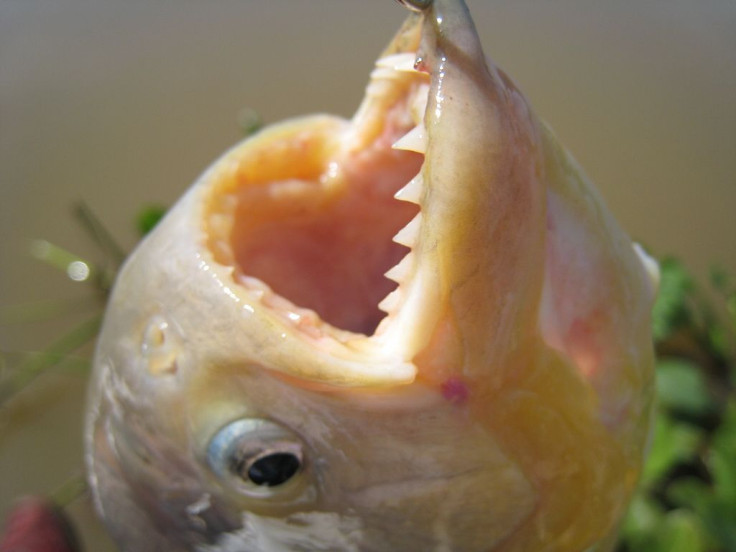Pacu, The Testicle-Eating Fish, Likely To Ruin Summer For Swedes

Swedish and Danish officials are urging Scandinavian males to swim with caution after a fisherman in the Oresund Sound caught an eight-inch pacu — an Amazonian piranha-relative known for its disconcerting, particular appetite. The Telegraph reports that the freshwater fish, which grow up to 35 inches and weigh up to 55 pounds, has earned the nickname “ball cutter” after its notorious proclivity for eating human testicles.
"Keep your swimwear on if you're bathing in the Sound these days — maybe there are more out there!" the Danish National History Museum cautioned.
The pacu’s powerful bite has caused many fishermen to lose their testicles and bleed out in areas where the fish proliferates, such as the Amazon and Orinoco basins. While the pacu has been spotted in several regions across North America, the Oresund Sound specimen is the first caught at sea in Europe.
"The pacu is not normally dangerous to people but it has quite a serious bite, there have been incidents in other countries, such as Papua New Guinea where some men have had their testicles bitten off," said Henrik Carl, a fish expert at the museum. “Its mouth is not so big, so of course it normally eats nuts, fruit, and small fish, but human testicles are just a natural target. It's not normal to get your testicles bitten off, of course, but it can happen, especially now in Sweden."
The Oresund Sound pacu is currently undergoing DNA testing to confirm that it is, in fact, the feared “ball cutter.” Carl said that superficially, the pacu fish resembles its infamous cousin: the piranha.
"They are almost identical to the piranha, you couldn't even tell from the outside. It's just that they have different teeth. Flatter and stronger, perfect for crushing," he explained.
Although a single pacu fish is little cause for alarm, Carl suggests the presence of one may indicate more.
"This one was the first, but who knows, it's probably not the last," he warned.
The pacu fish caused a similar scare last year, when it was caught in Lake Lou Yaeger, Ill.. Biologists noted that pacu fish found at such distances from their natural habitat are most likely former aquarium pets, and that anyone attempting to introduce specimen to similar bodies of water may face criminal charges.



























